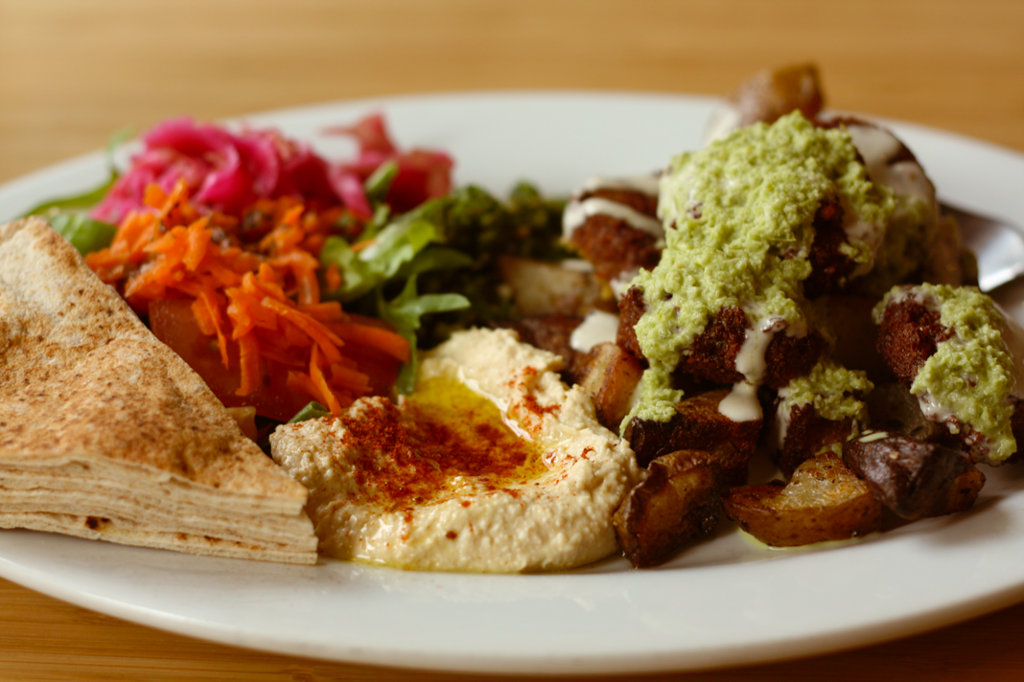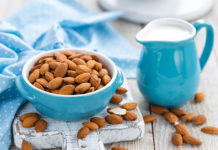By Dr. Craig A. Maxwell
In this fast paced society of processed food, preservatives, and fake additives, more and more health conscious individuals are choosing to go vegan. Although taking the healthy route seems logical, this path can feel a bit lonely at times. With the onslaught of fast food restaurants plaguing our street corners, the healthy diet trail can be a difficult one to travel these days.
Being vegan is not just about choosing to pursue a healthy diet; it’s an entire lifestyle change. When we picture vegans, many of us envision gurus and yoga instructors toting their “save the animal” protest signs at PETA events or working their fruit and vegetable stands at the local Farmer’s Market.
For most, I believe it is a lifestyle change to improve health and avoid, or try to reverse, many medical conditions. There is no denying the fact that vegan lifestyles are currently trending in popular mainstream society circles. If you have considered going vegan, understanding the importance of daily nutritional needs proves quite effective. Be prepared to think outside the typical box of three square meals.
What is a Vegan?
“While vegetarians eliminate meat, fish and poultry, vegans take it a step further, excluding all meat products–even dairy and eggs. (Vegans are often animal rights activists who don’t believe in using animal products for any purpose.) So say goodbye to refried beans with lard, margarine made with whey and anything with gelatin, which comes from animal bones and hooves, too. Fruits, vegetables, leafy greens, whole grains, nuts, seeds and legumes will be your staples.”
The best way to take that first step towards a vegan diet is simple. Try eliminating meat products one meal at a time. Many of us get discouraged when we set out to conquer those lofty goals. By easing into this challenging lifestyle, we begin to appreciate the changes on a small scale, while we learn more about what our body truly needs to maintain healthy levels of nutrition. Following strict regiments, and impossible diet plans, may deter us from entering into this realm of healthy vegan living.
Health Benefits of Going Vegan
For those of us looking to improve our health drastically, eliminating meat from our diet is a good choice. With diabetes, high blood pressure and cholesterol levels reaching higher levels due to the convenience of fast food restaurants, choosing the vegan diet can drastically improve health. “Vegans and those who avoid animal products (even part of the day, or part of the week) often have low rates of obesity, and on average weigh 5 to 20 percent less than meat eaters. Vegetarian diets on the whole are linked to lower BMIs, reduced risk of type II diabetes and lower incidents of cardiovascular disease. Furthermore, increased consumption of fruits and vegetables lower rates of certain cancers, especially colon cancer.”
Choosing a vegan diet that works can be challenging. Following simple guidelines based on typical daily nutritional needs is crucial when going all out meatless. Be sure to read more about vegan dietary needs when executing a solid plan of attack. I recommend adding Foundation Vitamin Formula to your vegan diet, in order to supplement your daily levels of vitamins, minerals and other nutrients in the correct amounts and balance.
Vitamin B12 is a vitamin found only in animal and dairy products, so it is necessary for vegans to take this in a supplement form. It is available in some vegan products which have been fortified with it, however, so be sure to read labels. Foundation Vitamin Formula contains 1,000 mcg. of vitamin B-12 in the form of methylcobalamin, a superior form of B-12.
Daily Needs
1) Grains (5-6 servings daily)
Good choices include quinoa, oats, brown rice, barley, buckwheat, rye and whole-wheat. Avoid refined grains (white flour or white rice) if possible. Refined grains lack nutrients and disrupt healthy blood sugar levels. If you are sensitive to gluten, be sure to incorporate this into the equation by choosing gluten-free grains.
2) Protein (4-5 servings daily)
Quinoa, black beans, lentil, nuts and natural supplements are good sources, providing plenty of necessary protein. Chickpeas, tofu, peanut butter, soy milk, and almond milk are high in protein as well.
3) Fruits and vegetables (4 -8 servings combined)
Fresh fruits and vegetables are definitely required to maintain the vegan lifestyle. Smoothies and/or fresh pressed juice serve as a quick source to boost our daily requirements of fruits and vegetables. Add protein powder and/or natural supplements to the smoothie and cover a few of those daily nutritional needs with one source.
4) Healthy fats (2 servings/day)
Sesame seeds/oil, avocado and coconuts are good ways to add some healthy fats to your vegan diet. Desserts minus the butter, are also recommended.
I always recommend eating non-GMO, organic food when possible. For a great read on the vegan lifestyle change, I highly recommend this book written by a triathlete Texan firefighter who is not only a vegan, but an oil-free vegan!
Best Daily Habits
Change is a process and the painful growth associated with change discourages many of us. Choosing to go vegan might seem overwhelming at first, but change is necessary, especially when it concerns our nutritional well-being. Before shunning the vegan idea, take time to research the facts.
Most of us keep busy fulfilling our daily work duties seeking more balance and better health. Time is of the essence, and this precious fact might deter us from thinking outside of the box. Here are three time-saving, vegan options that should help to better manage daily meal planning.
1) Avocado, hummus and cucumber sandwich on a multigrain bread or pita. Add some of your favorite spices and herbs for flavor.
2) Any soup that is plant based. Purified water, black beans, tofu and your favorite vegetables are quick and easy meal options.
3) Salads with fresh fruits and vegetables are tasty and good for you. Try using tofu in place of meat and/or avocado instead of cheese. Remember to get creative with those natural ingredients.
If you are interested in learning more about additional supplements and nutrients geared toward the vegan lifestyle, I recommend checking out my full line of Diamond Nutritional products. Our product line continues to grow, as we regularly add new products.









